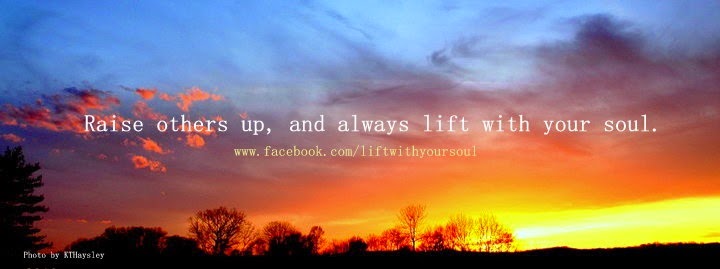Abe
Lincoln and the middle biscuit
by Kelly T. Haysley
February 12, 2015
The
U.S. calendar says it is February 12 - Abraham Lincoln’s birthday. He is a
former President who led our country with wisdom and foresight, through one of
the darkest periods in our history. Obviously February 12 is a day on which
great men are born. It is also my father’s birthday. Had he not left this Earth
two years ago, my dad would be 83 years old today. We all miss his wisdom,
patience and kindness, not to mention his ability to fix or build anything. I
could go on and on about my father. He was too many good things to fit onto one
page.
This
evening as we were preparing dinner, I purposefully placed biscuits on a baking
pan side-by-side so they would touch as they bake. When you pull apart the
finished biscuits, it leaves soft, chewy sides rather than golden, crispy
edges. My dad always preferred those with the soft edges. We would often make
sure to save him the middle biscuit. At times it was something to tease him
about.
I
shared this little factoid with my husband, and he noted it was something, that
after 23 years, he had never heard about my dad. We all know that it is often
these sudden memories which make us miss
someone. But in a fun way, they also lead to more reminiscing about the other
little things we remember – or had almost forgotten – about someone we have lost.
Thinking about the middle biscuit opened the gates to so many random
recollections.
Dinner
time often sparks memories of my father. My husband I frequently talk about how
much my dad loved his hot peppers with his meals. He enjoyed growing them in a
garden, and eating them raw until his nose ran, eyes watered and he’d get the
hiccups. He enjoyed cooking home-style
dishes and made the best Salisbury steak on the planet. His patience made him a
great cook. He took the time to get it done right, and pay attention to details
(just like he did as a contractor, and as a railroad engineer). Dad was the one who taught me anything I know
about jelly making, pickling, and pinching the suckers off of tomato plants. Always teaching.
Benjamin
Franklin is credited with saying, “Tell me and I will forget, teach me and I
remember, involve me and I learn.” My
dad knew this innately, and he lived it every day. I was always involved in whatever he was
doing around the house or in the yard, at his desk or in the kitchen. I was
always welcomed in his world and he was ever so patient in answering thousands
of questions or letting me try to “do it myself” even when I was certainly
slowing down his productivity.
Too
many times, I interrupted him as he sat at his desk, paying the bills, doing
the taxes or preparing his Sunday school lesson (another way he taught). He never made me feel bothersome or in his
way – which I was. He always included me. I remember helping him underline text
in his Sunday school lesson book (he never highlighted, just underlined), and I
was always allowed to lick the envelopes and stamps for the pile of bills he
had just paid.
Dad
always made time to sit at the table and help me with homework, and found
inventive ways to assist me if needed. In first grade he taught me a helpful
hint – to visualize numbers with dots on them, to represent the value of each
number. It helped me “see” the value and therefore made it easier for a visual
person like me, to add and subtract.
Almost
thirty years later, when I enrolled my son in a school for special needs
children, they were using TouchMath curriculum to assist special learners. It closely resembled the system my dad had
come up with for me in 1980, and is the system I use to teach my special son.
Dad was ahead of his time and never knew it.
When
I began making wedding cakes professionally in 1997, my father was my first
assistant, helping me transport and set-up those monstrosities. His engineering
mind often helped me trouble-shoot my designs. He enjoyed watching and learning
from me, and was just as willing to follow my lead, as I had always been for
him.
Although
he spent his career with the railroad, he said he had always wanted to be a
teacher. I never knew him as anything but. He was my dad, and he was my best
teacher. He was wise, thoughtful,
introspective, and ahead of his time – much like Abe Lincoln. And he was always warm, soft and comforting –
yes, just like the middle biscuit.
One
of my favorite “Dad dishes”
Larry’s Pea Salad
2 cans tiny peas (drained)
2 cans white whole kernel, shoe peg corn
1 green pepper, finely diced
1 cup celery, finely diced
1 medium onion, finely diced
1 large jar pimentos
1 cup sugar
½ cup vegetable oil
1 tsp salt
1 tsp pepper
¾ cup white vinegar
Blend all in a bowl, chill. Ready to serve.
Somewhere in West Virginia, c.1983
Copyright 2015 Kelly T.Haysley
LiftWithYourSoul.blogspot.com


